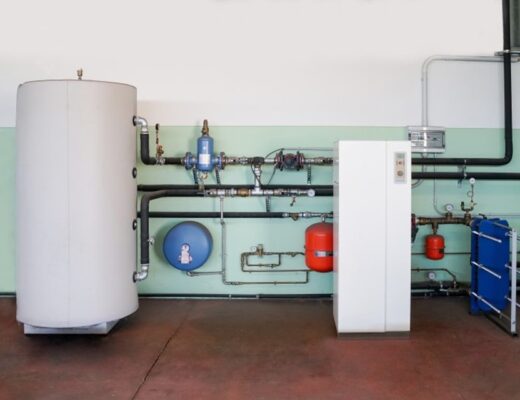Key Takeaways:
- The journey to recovery from drug addiction is multifaceted and requires a personalized approach.
- Understanding the neurological impacts of addiction can provide insight into treatment options.
- Behavioral therapies, medication-assisted treatment, and support systems are crucial elements of the recovery process.
- Addressing the stigma surrounding drug addiction is necessary to improve outcomes and encourage seeking help.
Introduction To Drug Addiction Recovery
Embarking on the path to recovery from drug addiction is one of the bravest steps an individual can take. It’s a complex journey that involves more than just abstaining from substances—it encompasses a complete transformation of one’s lifestyle, behavioral patterns, and coping mechanisms. For those seeking to rebuild their lives, facilities like those specializing in Drug Rehab Louisville offer tailored treatment programs intended to address the multifaceted nature of addiction.
Recognizing drug addiction as a chronic disease rather than a moral failing is essential for effective treatment. Just as with other chronic illnesses, addiction treatment typically requires a long-term approach, with periods of treatment, monitoring, and possible relapse. Key to this journey is an understanding that recovery is not a one-size-fits-all process and a successful outcome relies on personalized care and comprehensive support systems.
The process begins with the individual’s acknowledgment of their addiction and the courage to seek help. This step is critical, as it lays the groundwork for all the subsequent efforts in the recovery phase. Once the commitment to change is secured, the individual—often with assistance from loved ones or professionals—can navigate the complexities of various recovery programs to find one that resonates with their situation.
Early Steps To Seeking Help
The initial stages of confronting drug addiction involve an acknowledgment of the problem and the subsequent step of seeking help. Often, an intervention by loved ones can act as a catalyst for the decision to pursue recovery. Once the decision is made, exploring the various treatment options is critical. A spectrum of resources and programs is designed to offer the necessary support, from residential treatment centers to outpatient services.
Discovering the right pathway to recovery is a deeply personal process involving various approaches, such as traditional therapy, holistic methods, or a combination thereof. The goal of early intervention is to halt the progression of addiction and create a structured treatment plan that addresses the unique needs of the individual. Conducting research, asking questions, and visiting potential treatment centers help clarify what steps will be most beneficial for beginning the recovery journey.
Recovery is not a journey that should be walked alone. From the very first step, it is paramount that a supportive network surrounds those seeking recovery through support groups, family, or dedicated healthcare professionals. Ensuring this network is present can substantially contribute to the commitment and motivation needed to overcome addiction.
Treatment Modalities For Drug Addiction
Drug addiction treatment can take many forms, from outpatient programs allowing individuals to maintain certain aspects of their daily routine to inpatient programs that provide immersive, 24-hour support. There are a variety of therapeutic approaches, including individual and group therapy sessions, cognitive-behavioral therapy (CBT), and other evidence-based practices. Medication-assisted treatment (MAT) may also be utilized to manage withdrawal symptoms and cravings, which can play a significant role in relapse prevention.
Selecting the appropriate treatment modality can make a substantial difference in the success of a recovery program. For example, an inpatient program may be better suited for individuals with severe addiction or those who have not found success with outpatient treatment. Outpatient programs benefit those who must continue to meet work or family obligations while receiving treatment.
Behavioral therapies are central to most treatment protocols, designed to help patients engage in the recovery process, modify their attitudes and behaviors related to drug use, and increase healthy life skills. These therapies can be enhanced when combined with MAT, which uses medications like methadone or buprenorphine to stabilize the individual and reduce the physiological cravings for drugs, thus providing a more comprehensive treatment approach.
The Science Behind Addiction
Drug addiction is fundamentally a neurological disorder where brain chemistry and function are altered by substance abuse. Over time, the use of drugs impacts the brain’s reward system, leading to a dependency that requires professional intervention. Scientific research has indicated that factors like genetics and environment play significant roles in the susceptibility to addiction, further complicating the recovery equation.
Understanding the role of these factors not only underscores the challenges faced during the recovery process and helps develop targeted interventions likely to result in a successful recovery. Knowledge of how addiction changes the brain’s reward circuitry is essential in formulating treatment plans that address not only the physical aspects of dependency but also the psychological dependence that often accompanies it.
The transformation within the brain manifests in various ways—changes in the production of neurotransmitters like dopamine and glutamate can result in altered moods, decision-making, and even physical abilities. The addict’s brain begins to prioritize substance use over other vital life activities, creating a destructive cycle that can be difficult to break without proper guidance and support.
The Challenges Of Detoxification
One of the most daunting aspects of the recovery process is the detoxification phase, characterized by withdrawal symptoms that can range from uncomfortable to life-threatening. It is not recommended to undergo this stage without medical supervision due to the potential health risks. Supportive care during detox can include pharmacological assistance to ease symptoms and supportive counseling to prepare for subsequent treatment phases.
Understanding and navigating the detoxification process is a crucial step toward long-term recovery. Withdrawal symptoms can be both physical and psychological, manifesting as nausea, shaking, anxiety, and depression. These symptoms, while a natural part of detoxifying the body from substances, require careful management to ensure the safety and comfort of the patient.
Detox is the initial step in a long line of treatments, serving as the foundation for more profound therapeutic work that will follow. Once the substances are no longer present in the body, individuals can engage more fully in therapy and begin to tackle the underlying causes of their addiction. This sets the stage for the work ahead—developing strategies to resist the temptation of drugs and build a stable, satisfying life free from substance abuse.
The Role Of Counseling & Therapy
Counseling and therapy are cornerstones of the addiction recovery process. They provide the necessary tools for individuals to understand their addiction triggers, develop coping strategies, and rebuild their lives. These therapies, particularly CBT, have proven effective in helping individuals modify their thinking and behavior patterns associated with drug use.
The therapeutic environment offers a safe space for individuals to confront their addiction, recognize the patterns that contribute to it, and work through the emotional and psychological struggles that accompany recovery. Therapists can guide patients through the exploration of past traumas or issues that may have contributed to their dependency, facilitating healing and growth.
Furthermore, therapy can foster skill-building for patients, such as communication, stress management, and emotional regulation—skills that are often compromised during active addiction. As patients progress in therapy, they can use these new tools to handle life’s challenges without resorting to substance use.
Long-Term Recovery & Relapse Prevention
Long-term recovery is about creating a new, substance-free life. Key to this process is developing healthy habits, seeking regular therapy, and engaging in support groups or networks. Such measures are preventive, aiming to maintain sobriety and prevent relapse, which is a common occurrence in the recovery timeline.
Building a substance-free life often involves creating routines prioritizing holistic well-being—attending regular appointments with healthcare professionals, maintaining a balanced diet, exercising, and engaging in meaningful activities. Relapse prevention is an ongoing effort that benefits significantly from continued education on addiction and maintaining a proactive stance toward one’s mental health.
Community involvement is also a pivotal part of sustaining recovery. Whether through local support groups, recovery-focused organizations, or online forums, connecting with others who understand the challenges of addiction can provide invaluable support and accountability. The shared experiences within these communities help normalize recovery struggles, offer practical advice, and celebrate the victories of sobriety.
The Impact Of Stigma On Recovery
The societal stigma surrounding drug addiction often serves as a barrier to seeking help. It is vital to counteract these stigmas through advocacy and education. Publications such as Psychology Today offer insights into the stigma of addiction and guide towards a more compassionate understanding.
Shedding light on the nature of addiction as a disease rather than a moral failing is critical in encouraging individuals to seek treatment. The stigma attached to addiction can lead to feelings of shame and isolation, which can deter individuals from pursuing the help they need. Changing public perception can support those in recovery and influence policy decisions that improve access to treatment and resources.
Education efforts can extend to schools, workplaces, and healthcare environments, fostering a culture where individuals feel safe to disclose their struggles with addiction without fear of judgment or retribution. Storytelling and sharing personal accounts of recovery can humanize the issue and contribute to a more supportive societal approach to dealing with drug addiction.
Success Stories In Recovery
Hearing about others who have successfully overcome addiction can be a powerful motivator for those embarking on their recovery journey. Community plays a crucial role in this aspect, providing support and firsthand experiences that inspire and give hope to those struggling with substance abuse.
Success stories serve as tangible proof that recovery is possible, offering various perspectives on the challenges and triumphs involved in overcoming addiction. These narratives often highlight the critical role of professional treatment, support networks, and personal determination in achieving sobriety.
Sharing success stories can also serve as a means of advocacy, increasing awareness and understanding among the broader public, ultimately leading to a more supportive environment for others beginning their journey to recovery.
Pathways To A Drug-Free Future
Prevention is the best form of intervention. By focusing on strategies that prevent the onset of drug abuse, such as through education and policy changes, communities can create a healthier, drug-free environment. Access to high-quality care and community-based programs are essential components in reducing the prevalence of drug addiction.
Early intervention, education campaigns, and the implementation of policies that restrict easy access to drugs can dramatically reduce the number of individuals affected by addiction. Robust community support systems and ongoing mental health services can further bolster prevention efforts, providing resources for those at risk before addiction takes hold.
Ensuring that every person has access to the tools and support necessary for a life free from addiction is a shared societal responsibility. By taking a proactive stance, it’s possible to pave the way for a future where drug addiction is significantly less prevalent and recovery resources are readily available to those in need.








No Comments